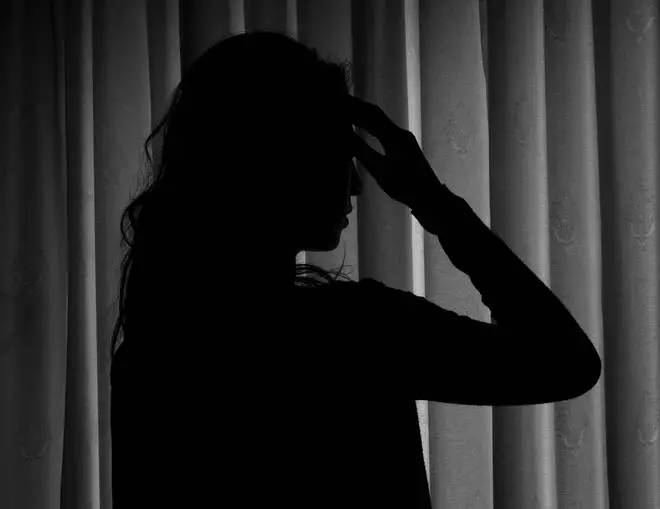
Clive Bull 1am - 4am
18 August 2020, 12:26

The number of adults experiencing depression has almost doubled during the coronavirus pandemic, new figures suggest.
Data from the Office for National Statistics (ONS) showed that nearly one in 10 British adults suffered some sort of depression between July 2019 and March 2020.
But when the same group was assessed again in June, the figure had risen to almost 20 per cent - nearly one in five.
The majority (84 per cent) of people experiencing some sort of depression cited stress and anxiety affecting their wellbeing, and 42 per cent said their relationships had been affected.
The ONS research examined data from the same 3,500 British adults both before and during the pandemic.
Statisticians found those most likely to say they had been affected by depression in June were younger adults (aged 16 to 39), women, those "unable to afford an unexpected expense", and disabled people.
Adults reporting some form of depression has almost doubled during the pandemic, from 10% (July 2019 to March 2020) to 19% in June.
— Office for National Statistics (ONS) (@ONS) August 18, 2020
Of all adults 13% had developed symptoms over the last year, while 6% said their symptoms had stayed the same in this time https://t.co/zmp6XDXdr3 pic.twitter.com/dpLSuVUvco
Depressive symptoms include low mood and loss of interest and enjoyment in ordinary things.
Researchers also examined the levels of depression - which are classed as mild, moderate or severe depression.
12 per cent developed moderate to severe depressive symptoms during the pandemic, while 6.2 per cent already were already experiencing symptoms at this level.
Of those experiencing moderate to severe depressive symptoms during the pandemic, 62 per cent said they felt lonely "often or always", compared with 15 per cent of those with no or mild depressive symptoms.
Just 3.5 per cent saw an improvement during the same timeframe.
Tim Vizard, from the ONS, said: "Today's research provides an insight into the mental health of adults during the coronavirus pandemic.

Public health will be affected years after coronavirus
"Revisiting this same group of adults before and during the pandemic provides a unique insight into how their symptoms of depression have changed over time.
"Nearly one in five adults were experiencing some form of depression during the pandemic, almost doubling from around one in 10 before.
"Adults who are young, female, unable to afford an unexpected expense or disabled were the most likely to experience some form of depression during the pandemic."
Commenting on the figures Dr Billy Boland, chairman of the General Adult Faculty at the Royal College of Psychiatrists, said: "The doubling in the numbers of people experiencing depressive symptoms is another warning of the looming mental health crisis and the tsunami of referrals we are expecting over the coming months.
"Isolation, bereavement and financial insecurity are some of the reasons why the nation's mental health has deteriorated since the start of the pandemic.
"The Government must speed-up the investment promised to mental health services in the NHS long-term plan if we are to treat the growing numbers of people living with depression and other mental illnesses."
Listen & subscribe: Global Player | Apple Podcasts | Google Podcasts | Spotify
Mark Winstanley, chief executive of the charity Rethink Mental Illness, said: "These statistics underline the mental health impact on the population at large, and also highlight the groups in society who more be more vulnerable to developing mental health problems, such as young adults, disabled people and those facing financial instability.
"Mental health problems can affect every aspect of a person's life.
"It's crucial that people seek help to manage depressive symptoms and are able to access services when they need them to prevent further deterioration in their health.
"We anticipate a significant increase in demand for services and support due to the pandemic, but it's crucial to recognise that the responsibility for mental health goes beyond the NHS and demands a cross-government approach.
"Support with employment, housing and financial problems for example must all be prioritised now the country is in recession and recognised for their role in supporting people's mental health during a time of great uncertainty and strain."
The Every Mind Matters portal has information coronavirus and wellbeing https://www.nhs.uk/oneyou/every-mind-matters/ and the charity Samaritans have a freephone number 116 123